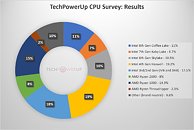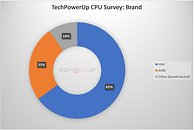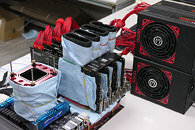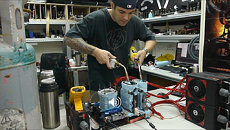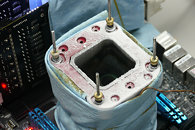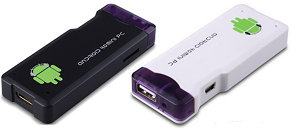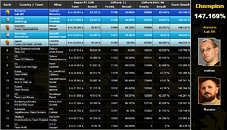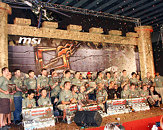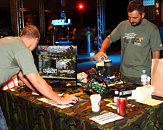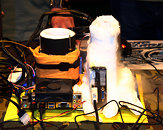
TechPowerUp Processor Survey Results: The Ryzen Effect is Real
Late May 2018, TechPowerUp started a front-page poll asking people which processor they use. 37 days and 16,140 responses later, we have a general idea of where the desktop processor market stands among our readers (predominantly PC gamers and enthusiasts). The top-two responses to our survey were 4th generation Core "Haswell," followed by the preceding two generations ("Ivy Bridge" and "Sandy Bridge"). This speaks volumes as to the hole Intel dug itself into, due to lack of competition from AMD. Processors that are 4-7 years old still run today's gaming PCs, and don't bottleneck today's games, as long as graphics cards keep getting faster (where there has been relatively more competition than the CPU market).
Despite being newer, fewer respondents use 6th generation "Skylake" and 7th generation "Kaby Lake" processors than older generations, because those on something like 4th generation "Haswell" or even "Ivy Bridge," don't see the value in upgrading. But then something changed in 2017 - AMD became competitive again, and forced an increase in CPU core counts across the segment. AMD's Ryzen processor family, including both its 1st and 2nd generations, are better received in the market than Intel's competing 8th generation "Coffee Lake" and 7th generation "Kaby Lake." The data stands to validate the "Ryzen effect," the idea that the introduction of Ryzen disrupted Intel's near-monopoly, increased core-counts, and brought innovation back to the segment.
Despite being newer, fewer respondents use 6th generation "Skylake" and 7th generation "Kaby Lake" processors than older generations, because those on something like 4th generation "Haswell" or even "Ivy Bridge," don't see the value in upgrading. But then something changed in 2017 - AMD became competitive again, and forced an increase in CPU core counts across the segment. AMD's Ryzen processor family, including both its 1st and 2nd generations, are better received in the market than Intel's competing 8th generation "Coffee Lake" and 7th generation "Kaby Lake." The data stands to validate the "Ryzen effect," the idea that the introduction of Ryzen disrupted Intel's near-monopoly, increased core-counts, and brought innovation back to the segment.
